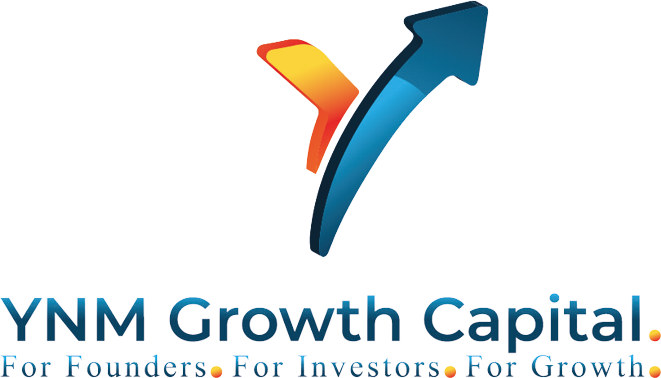Angel, Seed, or VC? A Founder’s Guide to Picking the Right Capital at the Right Time

Venture? Seed? Angel? — What’s the Difference?
Every founder hears it early: “You should raise funding.”
But nobody tells you from whom.
Is it an angel? A seed fund? A VC? A wealthy uncle with an over-enthusiastic tax advisor?
Having seen thousands of decks, invested across stages, and watched founders take the wrong money at the wrong time (a mistake that feels fine now but bites you at Series A), let me lay it out straight.
Here’s how to navigate the fundraising jungle—starting with understanding the terrain.
🧩 The Capital Continuum: Who’s Who?
Let’s first define the key players—because while they all offer funding, they differ drastically in stage, structure, and expectations.
👼 Angel Investors
Who they are: High-net-worth individuals—often ex-founders, operators, or executives—who invest personal money in early-stage startups.
Cheque size: £10k to £250k
Stage: Pre-revenue, sometimes pre-product
Expectations: High risk tolerance, personal rapport matters, often light touch but well-networked
Time to close: Quick—sometimes within a week
💡 Best when…
You’re building an MVP, need early believers, or want founder-friendly capital with flexible terms.
📍 Geography note: More active in the UK, Europe, and India now than ever before. Syndicates like the UKBAA or AngelList have made angel capital far more accessible.
🌱 Seed Funds
Who they are: Institutional funds focused on early-stage investing, typically backed by LPs.
Cheque size: £250k to £2M
Stage: Post-MVP, early traction (e.g., 500–5,000 users, initial revenues or strong engagement)
Expectations: Clear vision, technical validation, signs of product-market fit. Will want board rights and influence.
Time to close: 4–8 weeks with due diligence
💡 Best when…
You’ve got some signal: maybe revenue, maybe user growth. You need capital to hire a team or extend runway to Series A.
⚠️ Sector nuance: Climate, deep tech and biotech tend to raise larger seed rounds to cover long R&D timelines. Consumer tech or SaaS can often raise leaner seed rounds.
🚀 Venture Capital (Series A and beyond)
Who they are: Larger, institutional investors managing funds of hundreds of millions.
Cheque size: £2M to £20M+
Stage: Strong traction, clear metrics, scalable GTM strategy
Expectations: Growth. Fast. They look at CAC:LTV, churn, cohort behaviour. Product alone is not enough—they want market validation and repeatability.
Time to close: 6–12 weeks; bring your data room.
💡 Best when…
You’re scaling rapidly, need growth capital to expand geographies, launch new products, or dominate a category.
📍 Geography watch:
-
US VCs tend to invest bigger, earlier, and with more optimism (some might say bravado).
-
UK and European VCs are more conservative—often looking for “evidence of readiness” before leading a Series A.
-
Emerging markets (Africa, LatAm, Southeast Asia) are often supported more by blended funds and DFIs at this stage.
🔍 Quick Comparison Table
| Investor Type | Stage | Traction Needed | Cheque Size | Time to Close | Best For |
|---|---|---|---|---|---|
| Angel Investor | Pre-seed | Idea or MVP | £10k–£250k | Days to 2 weeks | First believers |
| Seed Fund | Seed | MVP + early users or revenue | £250k–£2M | 4–8 weeks | Building core team, proving PMF |
| Venture Capital | Series A+ | Strong metrics & scale plan | £2M–£20M+ | 6–12 weeks | Rapid growth, market expansion |
🧭 Sector-Specific Considerations
-
B2B SaaS: Often bootstrapped to early traction. Angels and seed funds come in to accelerate GTM.
-
Deep Tech / AI / Biotech: Higher R&D, longer cycles. Expect grant support, specialist angels, and larger seed rounds before VC.
-
Climate Tech: Mission-led angels and sector-specific seed funds are common. Many raise “pre-VC” rounds of £1M+.
-
Consumer / Marketplace: Angels help test hypotheses, but VCs often wait for viral traction or monetisation clarity.
🎩 A Bit of British Advice
Don’t raise Series A money for a pre-seed problem. Don’t over-optimise your cap table in the angel round. And never say yes to an investor just because they own a yacht.
Choose capital that fits your stage, sector, and ambition—not just your bank account.
Final Thought
The right money at the right time is rocket fuel. The wrong money is ballast.
As a founder, your job isn’t just to raise funds—it’s to curate your cap table. Like a good dinner party, everyone at the table should bring something useful, behave well, and leave the founder in charge.

